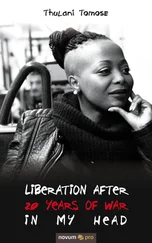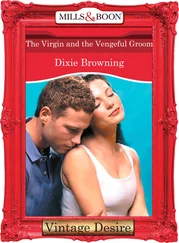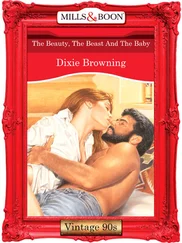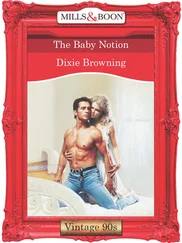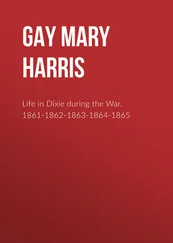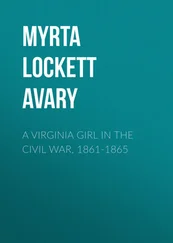Myrta Avary - Dixie After the War
Здесь есть возможность читать онлайн «Myrta Avary - Dixie After the War» — ознакомительный отрывок электронной книги совершенно бесплатно, а после прочтения отрывка купить полную версию. В некоторых случаях можно слушать аудио, скачать через торрент в формате fb2 и присутствует краткое содержание. ISBN: , Жанр: foreign_antique, foreign_prose, Историческая проза, на английском языке. Описание произведения, (предисловие) а так же отзывы посетителей доступны на портале библиотеки ЛибКат.
- Название:Dixie After the War
- Автор:
- Жанр:
- Год:неизвестен
- ISBN:http://www.gutenberg.org/ebooks/41730
- Рейтинг книги:5 / 5. Голосов: 1
-
Избранное:Добавить в избранное
- Отзывы:
-
Ваша оценка:
- 100
- 1
- 2
- 3
- 4
- 5
Dixie After the War: краткое содержание, описание и аннотация
Предлагаем к чтению аннотацию, описание, краткое содержание или предисловие (зависит от того, что написал сам автор книги «Dixie After the War»). Если вы не нашли необходимую информацию о книге — напишите в комментариях, мы постараемся отыскать её.
Dixie After the War — читать онлайн ознакомительный отрывок
Ниже представлен текст книги, разбитый по страницам. Система сохранения места последней прочитанной страницы, позволяет с удобством читать онлайн бесплатно книгу «Dixie After the War», без необходимости каждый раз заново искать на чём Вы остановились. Поставьте закладку, и сможете в любой момент перейти на страницу, на которой закончили чтение.
Интервал:
Закладка:
“We have laid down the sword. Work for a united country.”
One high-strung lad seeing a Federal soldier treat a lady rudely on the street (a rare happening in Richmond), knocked him down, and was arrested. The situation was serious. The young man’s father went to General Ord and said: “See here, General, that boy’s hot from the battle-field. He doesn’t know anything but to fight.” General Ord’s response was: “I’ll arrange this matter for you. And you get this boy out of the city tonight.”
There happened to be staying in the same house with some of our friends, a young Confederate, Captain Wharton, who had come on sick leave to Richmond before the evacuation, and who, after that event, was very imprudent in expressing his mind freely on the streets, a perilous thing to do in those days. His friends were concerned for his safety. Suddenly he disappeared. Nobody knew what had become of him. Natural conclusion was that free speech had gotten him into trouble. At last a message came: “Please send me something to eat. I am in prison.”
Ladies came to know if Matoaca would be one of a committee to wait on the Provost-Marshal General in his behalf. She agreed, and the committee set out for the old Custom House where the Federals held court. They were admitted at once to General Patrick’s presence. He was an elderly gentleman, polite, courteous. “I was surprised,” says Matoaca, “because I had expected to see something with hoof and horns.”
“General,” she said, “we have come to see you about a young gentleman, our friend, Captain Wharton. He is in prison, and we suppose the cause of his arrest was imprudent speech. He has been ill for some time, and is too feeble to bear with safety the hardships and confinement of prison life. If we can secure his release, we will make ourselves responsible for his conduct.” She finished her little speech breathless. She saw the glimmer of a smile way down in his eyes. “I know nothing about the case,” he said kindly. “Of course, I can not know personally of all that transpires. But I will inquire into this matter, and see what can be done for this young gentleman.” Soon after, Captain Wharton called on Matoaca. She could hardly have left General Patrick’s presence before an orderly was dispatched for his release.
Friction resulted from efforts to ram the oath down everybody’s throat at once. I recite this instance because of the part General Lee took and duplicated in multitudes of cases. Captain George Wise was called before the Provost to take the oath. “Why must I take it?” asked he. “My parole covers the ground. I will not.” “You fought under General Lee, did you not?” “Yes. And surrendered with him, and gave my parole. To require this oath of me is to put an indignity upon me and my general.” “I will make a bargain with you, Captain. Consult General Lee and abide by his decision.”
The captain went to the Lee residence, where he was received by Mrs. Lee, who informed him that her husband was ill, but would see him. The general was lying on a lounge, pale, weary-looking, but fully dressed, in his gray uniform, the three stars on his collar; the three stars – to which any Confederate colonel was entitled – was the only insignia of rank he ever wore. “They want me to take this thing, General,” said the captain, extending a copy of the oath. “My parole covers it, and I do not think it should be required of me. What would you advise?”
“I would advise you to take it,” he said quietly. “It is absurd that it should be required of my soldiers, for, as you say, the parole practically covers it. Nevertheless, take it, I should say.” “General, I feel that this is submission to an indignity. If I must continue to swear the same thing over at every street corner, I will seek another country where I can at least preserve my self-respect.”
General Lee was silent for a few minutes. Then he said, quietly as before, a deep touch of sadness in his voice: “Do not leave Virginia. Our country needs her young men now.”
When the captain told Henry A. Wise that he had taken the oath, the ex-governor said: “You have disgraced the family!” “General Lee advised me to do it.” “Oh, that alters the case. Whatever General Lee says is all right, I don’t care what it is.”
The North regarded General Lee with greater respect and kindness than was extended to our other leaders. A friendly reporter interviewed him, and bold but temperate utterances in behalf of the South appeared in the “New York Herald” as coming from General Lee. Some of the remarks were very characteristic, proving this newspaper man a faithful scribe. When questioned about the political situation, General Lee had said: “I am no politician. I am a soldier – a paroled prisoner.” Urged to give his opinion and advised that it might have good effect, he responded:
“The South has for a long time been anxious for peace. In my earnest belief, peace was practicable two years ago, and has been since that time whenever the general government should see fit to give any reasonable chance for the country to escape the consequences which the exasperated North seemed ready to visit upon it. They have been looking for some word or expression of compromise and conciliation from the North upon which they might base a return to the Union, their own views being considered. The question of slavery did not lie in the way at all. The best men of the South have long desired to do away with the institution and were quite willing to see it abolished. But with them in relation to this subject, the question has ever been: ‘What will you do with the freed people?’ That is the serious question today. Unless some humane course based upon wisdom and Christian principles is adopted, you do them a great injustice in setting them free.” He plead for moderation towards the South as the part of wisdom as well as mercy. Oppression would keep the spirit of resistance alive. He did not think men of the South would engage in guerilla warfare as some professed to fear, but it was best not to drive men to desperation. “If a people see that they are to be crushed, they sell their lives as dearly as possible.” He spoke of the tendency towards expatriation, deploring it as a misfortune to our common country at a time when one section needed building up so badly, and had, at the best, a terribly depleted force of young, strong men. Throughout, he spoke of the North and South as “we,” and expressed his own great willingness to contribute in every way in his power to the establishment of the communal peace and prosperity.
A brave thing for a “rebel” officer to do, he spoke out for Mr. Davis. “What has Mr. Davis done more than any other Southerner that he should be singled out for persecution? He did not originate secession, is not responsible for its beginning; he opposed it strenuously in speech and writing.”
Wherever he appeared in Richmond, Federal soldiers treated him with respect. As for our own people, to the day of his death Richmond stood uncovered when General Lee came there and walked the streets. If, as he passed along, he laid his hand on a child’s head, the child never forgot it. His words with our young men were words of might, and the cause of peace owes to him a debt that the Peace Angel of the Union will not forget.
CHAPTER VII
“The Saddest Good Friday”
In Matoaca’s little devotional note-book, I read: “Good Friday, 1865. This is the saddest Good Friday I ever knew. I have spent the whole day praying for our stricken people, our crushed Southland.” “The saddest Good Friday I ever knew”; nearly every man and woman in the South might have said that with equal truth.
Her “Journal” of secular events contains a long entry for April 14; it is as if she had poured out all her woes on paper. For the most part it is a tale of feminine trivialities, of patching and mending. “Unless I can get work and make some money,” she writes, “we must stay indoors for decency’s sake.” Her shoes have holes in them: “They are but shoes I cobbled out of bits of stout cloth.” The soles are worn so thin her feet are almost on the ground. The family is suffering for food and for all necessaries. “O God, what can I do!” she cries, “I who have never been taught any work that seems to be needed now! Who is there to pay me for the few things I know how to do? I envy our negroes who have been trained to occupations that bring money; they can hire out to the Yankees, and I can’t. Our negroes are leaving us. We had to advise them to go. Cato will not. ‘Me lef’ Mars Ran?’ he cried, ‘I couldn’ think uv it, Miss Mato’ca!’”
Читать дальшеИнтервал:
Закладка:
Похожие книги на «Dixie After the War»
Представляем Вашему вниманию похожие книги на «Dixie After the War» списком для выбора. Мы отобрали схожую по названию и смыслу литературу в надежде предоставить читателям больше вариантов отыскать новые, интересные, ещё непрочитанные произведения.
Обсуждение, отзывы о книге «Dixie After the War» и просто собственные мнения читателей. Оставьте ваши комментарии, напишите, что Вы думаете о произведении, его смысле или главных героях. Укажите что конкретно понравилось, а что нет, и почему Вы так считаете.





